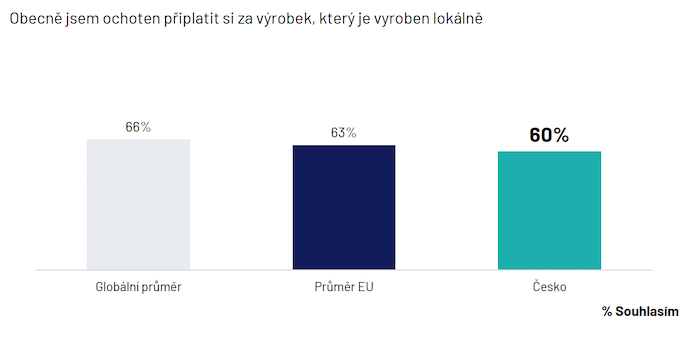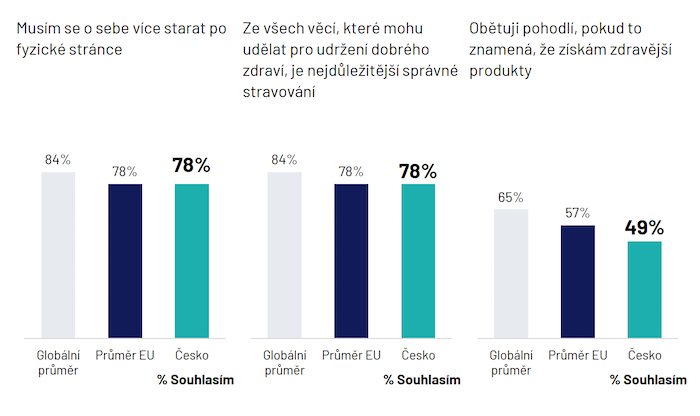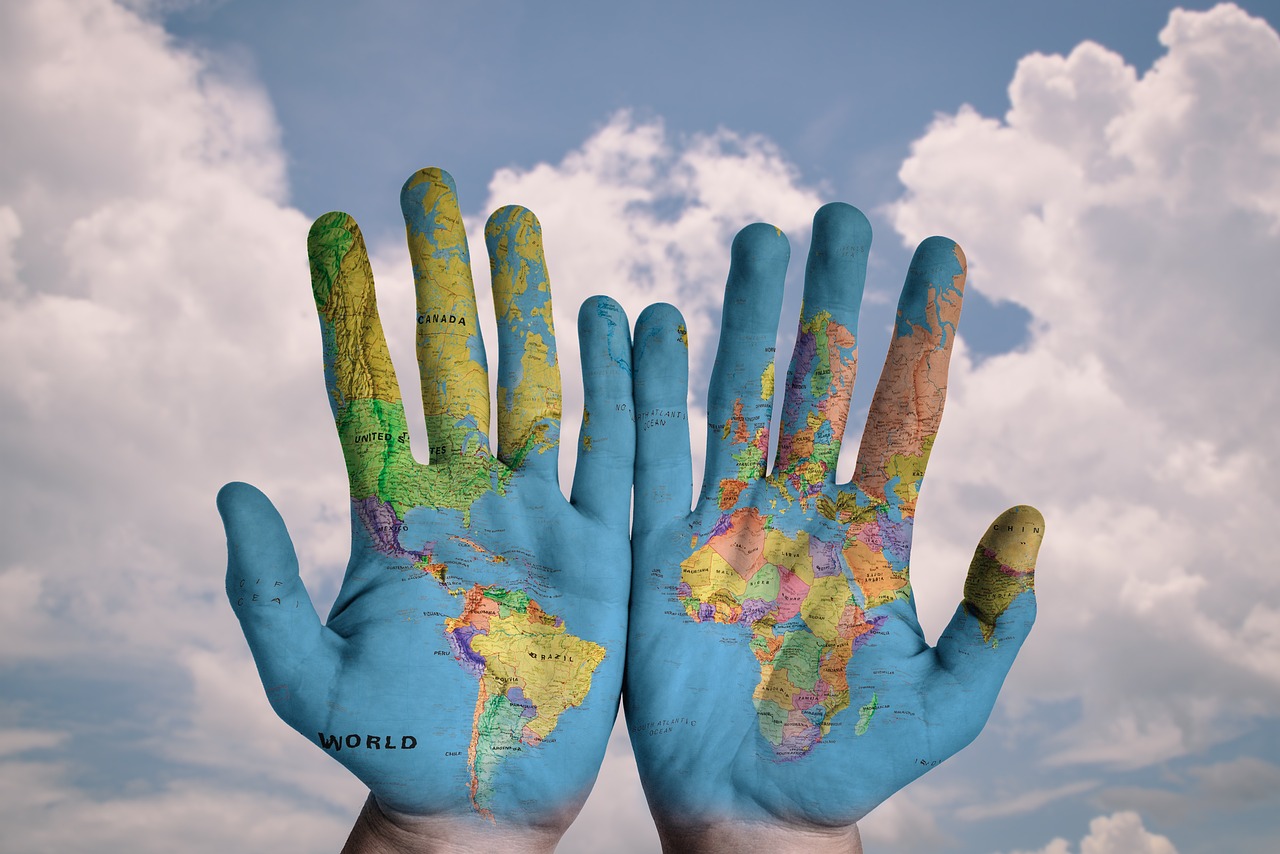The current geopolitical situation and climate change are having an impact on the global and domestic environment, which, combined with economic pressure, inflation and technological change, are fundamentally changing consumer values. What trends are influencing consumers today was mapped in the Ipsos Global Trends 2024 study of more than 50,000 respondents in 50 countries.
Over 80% of the population perceives that the world is changing too fast. Due to the mass use of data and artificial intelligence, this feeling is stronger than ever. The geopolitical situation is marked by conflict and climate disasters, both globally and domestically. Economic pressures, linked to inflation and high prices, persist. There is now a clear tension between the primary concerns and fears of different groups in Europe and the world, and there is no consensus on a unified approach.
A return to tradition and an emphasis on localism is an opportunity
While 78% of Czechs are aware of the accelerating pace of change, they are responding in different ways - some are adapting and embracing, while others are seeking to maintain control and return to traditional values. The trend of return to traditional patterns is one of the responses to the current global tensions. The importance of tradition and nostalgia is growing worldwide, making them a powerful tool for marketers who want to strengthen the relationship between consumers and brands. In the Czech Republic, the belief that tradition is an important part of society is even stronger (82%) than in the EU (78%) and worldwide (81%).
In the Czech Republic, scepticism about globalisation is also gradually declining, but at the same time the emphasis on localism is growing. 60% of Czechs are willing to pay extra for products that are made in the Czech Republic, which brands should take advantage of.
 Source: Ipsos Global Trends 2024
Source: Ipsos Global Trends 2024People want to have at least some control over their lives
For the Czechs, the key value is personal autonomy. In an uncertain and rapidly changing world that they cannot fully control, they try to have control over at least their own lives. As a result, many are turning to individualism, and across industries, achieving work-life balance is becoming a priority for 81% of Czechs, even more in the EU (85%) and 83% worldwide. The emphasis on individuality is also evident in online lifestyles, with more than a third of domestic consumers (35%) happy to buy products or experiences they think will look good online. Globally, up to 44% make this choice, with the trend stronger in Asia and Africa.
Taking at least some control over your life is linked to taking care of your overall health. Around the world, there is a growing willingness to adopt healthier lifestyles, including changes in eating habits - 78% of Czechs agree that they need to take better care of themselves physically, and that eating right is key. Just under half (49%) are willing to sacrifice their wellbeing if they can get healthy products in return, but this is 11 pp less than during the pandemic. Thanks to this trend, brands have the opportunity to profile themselves as leaders in health and wellness and offer innovative products or services that promote overall vitality.
 Source: Ipsos Global Trends 2024
Source: Ipsos Global Trends 2024Transparent and authentic communication is essential
In an age of misinformation, brands are becoming a reflection of consumers' values, evaluating them not only on price, but increasingly looking for trust and authenticity. As a result, interest in brands that can demonstrate transparent and accountable values has grown in recent years. 59% of Czechs are willing to pay extra for a brand with an image that people find personally appealing. At the same time, customer experience is becoming increasingly important and is becoming a key factor in purchasing decisions. Half of Czech customers are willing to pay for better customer experience.
The emphasis on value is coupled with an increasingly strong belief that brands should contribute to society, not just make a profit. This is the opinion of 70% of Czechs, and even 84% of respondents worldwide. Moreover, up to 67% of domestic consumers believe that a brand can support a good cause and make a profit at the same time. Because of the polarized society, brands need to communicate transparently and authentically to resonate with the values of their target audience.
The environment is also at the forefront of public concern, a topic where brands should be proactive and demonstrate their commitment to climate issues. Consumers now expect concrete action and are not satisfied with ambiguous commitments. The majority of Czechs (62%) believe that companies do not pay enough attention to the environment. Up to 67% of respondents believe that unless we change our habits quickly, we are heading for an environmental disaster.
Fear of too much technological progress goes hand in hand with fear of climate change. In Europe and the Czech Republic, there is still a certain reserve towards the impact of artificial intelligence on society - only 39% of Czechs and 41% of Europeans believe that AI has a positive impact on the world. For brands, there is an opportunity to build trust by educating about the benefits of technology and ensuring the security of personal data. Again, the key to success is transparent communication to alleviate consumer concerns.
Then there is a trend of new nihilism among young consumers, where the inaccessibility of owning their own home, the distance of getting married or starting a family makes them focus more on instant gratification and impulse buying decisions like "buy now, pay later". Two-thirds of Czechs live today because they see the future as uncertain. Brands can play a key role in bridging the gap between aspiration and reality by focusing on authenticity, transparency and tailoring their offers to individual customer needs.
Source: mediaguru.cz


